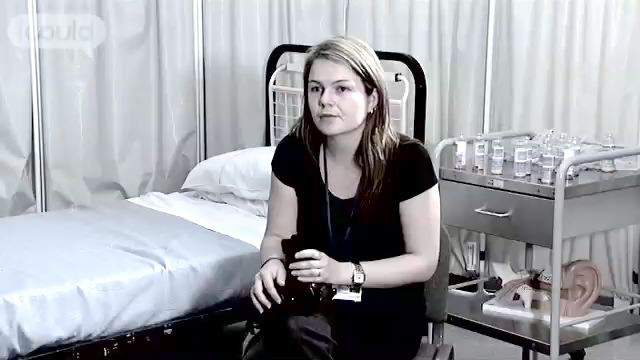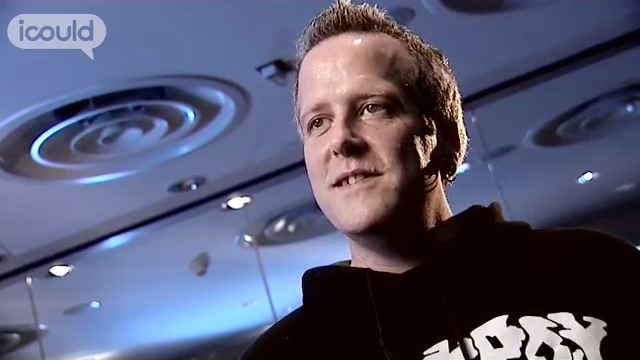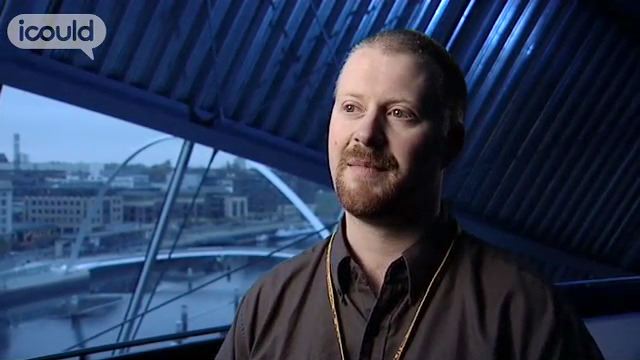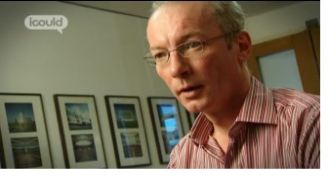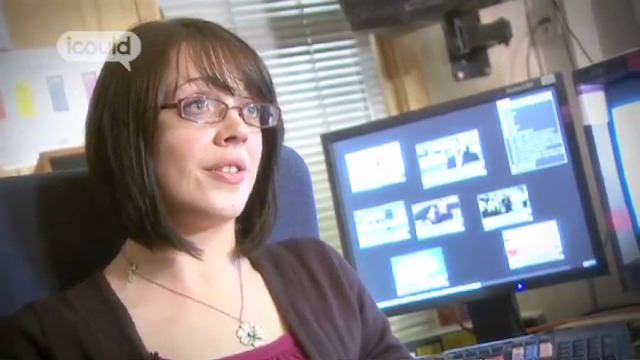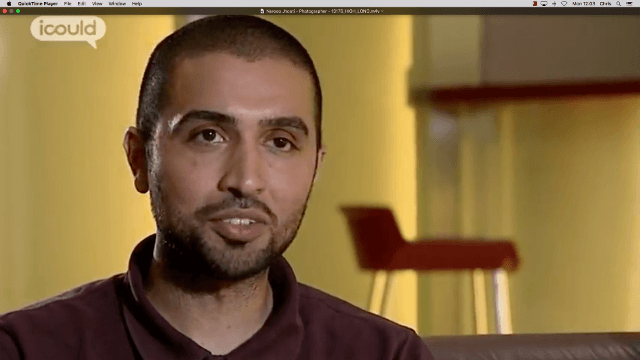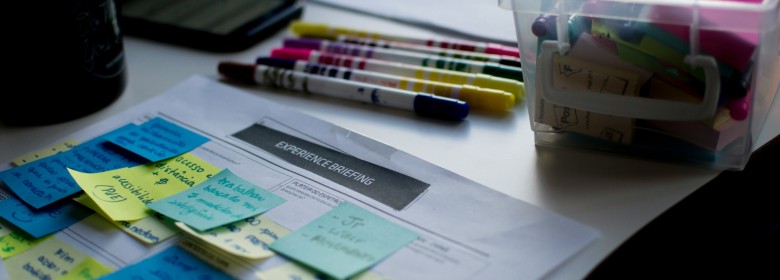Floor Manager/Camera Operator
BBC World Service
info Issues viewing the video?
|
|
CATHERINE C |
|
00:02 |
My name is Cat and I am a floor manager and camera operator. I’m actually a multi-skilled technical operator but my main roles are floor managing and camera operating. |
|
00:09 |
So a typical day, basically there’s never a typical day because we work in 24/7, all around the clock news, so our shifts range, starting from 8 o’clock, starting, then going till about 6, there are 10 to 8s, all sorts, even night shifts, which start at 10pm going till 8am. So there’s not really a typical day really here. It’s ever-changing because of breaking news situations and yeah, so there’s always recordings and there’s always stuff to keep us busy. |
|
00:21 |
All the presenters are really lovely, I mean they can have their off days like anyone can and they can be grumpy too, so but it is liaising with them, so I am very much a people person, which is a great sort of skill to have in my role as a floor manager and so you do have to be a people person and you have to be sort of nicely, nicely with them if they’re not having a very nice day or being complimentary and sort of helping them along and it is really just helping them fulfil their role because it’s really hard to be a presenter, being in front of the camera and talking, talking, talking, so it’s getting them water and just thinking in their shoes and helping them, a lot of the time anyway. |
|
00:52 |
So I went to Manchester Metropolitan University, absolutely brilliant uni, really good dramatic facilities. It has a sort of theatre, really good spaces, so I was pleased that I went there actually, even though it isn’t one of the drama unis, it was really good for getting into things like directing and doing things a little bit different. And then in my last year at uni, while I was doing as much work as I could, I still went out and like did normal social things, but I really tried hard to fill out loads of job apps and I was, I did set my sights on the BBC and I thought like I really want to work at the BBC and I did apply for jobs everywhere but I was very lucky to have an interview with the BBC. |
|
00:58 |
My first job at the BBC here was as a allocator which is admin basically and it is basically I was the dressing room allocator and sort of the sparks who are electricians and I basically did their rotas for want of a better explanation and for dressing rooms I would say, oh you know, this person’s in this dressing room for this amount of time and then it’s free from the amount of time, so it was all planning and organising really. |
|
01:25 |
It was after a few, a little while there that I suddenly saw an amazing floor manager called Carmella Milne. She’s the Blue Peter floor manager. She was just amazing and she just commanded the attention of the whole room and there’s animals and there’s kid and there’s flamboyant presenters and I was like, I want to be her, I want her job, it’s amazing and she’s going such a good job as and just that is what I want to do. One day someone was sick and they couldn’t cover it and I said, I’m ready, I’ve watched them, I know what I’m doing, I’ve had a go, I can do it and they let me do it and I, thank god, I swam and I didn’t sink, so it sort of all snowballed from there. |
|
02:10 |
Well I’m quite into animals and nature. I volunteer at London Zoo in my spare time. I’m very passionate about nature and animals, I just love animals. I was very lucky enough, last year to work on BBC Springwatch. I took three weeks out and yeah, worked with Springwatch, which was just amazing to be out in the wilds of Wales we were and just be amongst nature, just with me and my camera sometimes, for hours, just out filming bumblebees or frogs or whatever was out there. |
|
02:46 |
I climbed Kilimanjaro last year with my best friend, who also works here as a director for the news. We went, obviously it’s in Tanzania and then we sort of did test out a bit of our Swahili, which completely escapes me now but yeah, just little things, you know, like hello and thank you and you just, a lot of it you, I find quite interestingly with Swahili, is a lot of it’s from the Lion King, so like Asante Sana, Squash Banana, asante sana is thank you. So you do kind of think, oh actually I do, I really know this. |
|
03:36 |
You know, there’s times when my friends are all out on a Saturday night and I’m like oh, I start at 6 in the morning guys, I can’t come out and it’s horrible. That’s the kind of parts where you’re like, do I love it that much. And nine times out of 10 I do go, yeah I do love it, it’s OK, but it is horrible sometimes when you miss out on things because you’re at work or there’s, you know, friends are off to a gig and I can’t go because I’m on a late shift or, that kind of part of it and doing night shifts, really messes with your body clock, so it can make me really tired and a wee bit grumpy. |
|
04:03 |
Find out as much as you can about the industry. Try and find a name, that’s really hard, I think. I get a lot of people asking me, a lot of, you know, like family, friends and I even had my dad the other day saying there was one of his friends at work, his daughter is really keen to get into TV and I said yeah, no problem you know, give her my email address, I’ll give her as much advice, I’m happy to give advice to anyone because it is a tough industry to get into, because it’s popular, because it’s so great, but it’s worth it in the end, the end, if you end goal is working for the BBC, I did it, so I’m sure anyone else can do it too. |
|
04:29 |
End of Catherine C |
Catherine set her sights on working at the BBC whilst at university. Her first role at the BBC was a dressing room allocator. She loved working at BBC Television Centre and used to come in on her days off to get work experience with different teams. She works in News now but loves animals and would really like to work on natural history programmes.
More information about Photographers, audio-visual and broadcasting equipment operators
Data powered by LMI For All
£31,200
average salary
The UK average salary is £29,813
36
average weekly hoursThere are 37.5 hours in the average working week
75%
male
25%
female
The UK workforce is 47% female and 53% male
Future employment
Future employment
Description
Workers in this unit group operate and assist with still, cine and television cameras and operate other equipment to record, manipulate and project sound and vision for entertainment, cultural, commercial and industrial purposes.
Qualifications
There are no set academic requirements although entrants usually possess GCSEs/S grades, A levels/H grades and are able to demonstrate proof of pre- entry work experience. A variety of diplomas, degrees and postgraduate qualifications are available. NVQs/SVQs in Photography are available at Levels 2, 3 and 4.
Tasks
- Selects subject and conceives composition of picture or discusses composition with colleagues;
- Arranges subject, lighting, camera equipment and any microphones;
- Inserts lenses and adjusts aperture and speed settings as necessary;
- Operates scanning equipment to transfer image to computer and manipulates image to achieve the desired effect;
- Photographs subject or follows action by moving camera;
- Takes, records and manipulates digital images and digital video footage;
- Controls transmission, broadcasting and satellite systems for television and radio programmes, identifies and solves related technical problems;
- Checks operation and positioning of projectors, vision and sound recording equipment, and mixing and dubbing equipment;
- Operates equipment to record, edit and play back films and television programmes;
- Manages health and safety issues;
- Operates sound mixing and dubbing equipment to obtain desired mix, level and balance of sound.
Employment by region
Top 10 industries for this job
Film & music
18957
Employment activities
11399
Other professional
8467
Arts & entertainment
6523
Head offices, etc
6026
Broadcasting
5529
Publishing activities
4918
Gambling
3771
Sport & recreation
3734
Education
2489
Employment status
Related career stories
⇦
⇨
